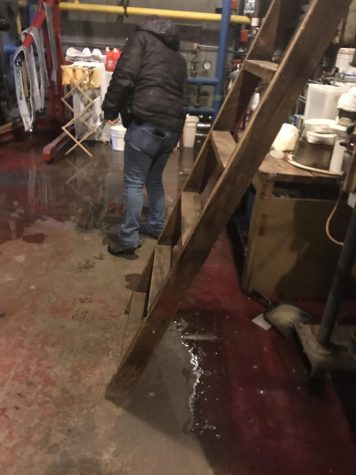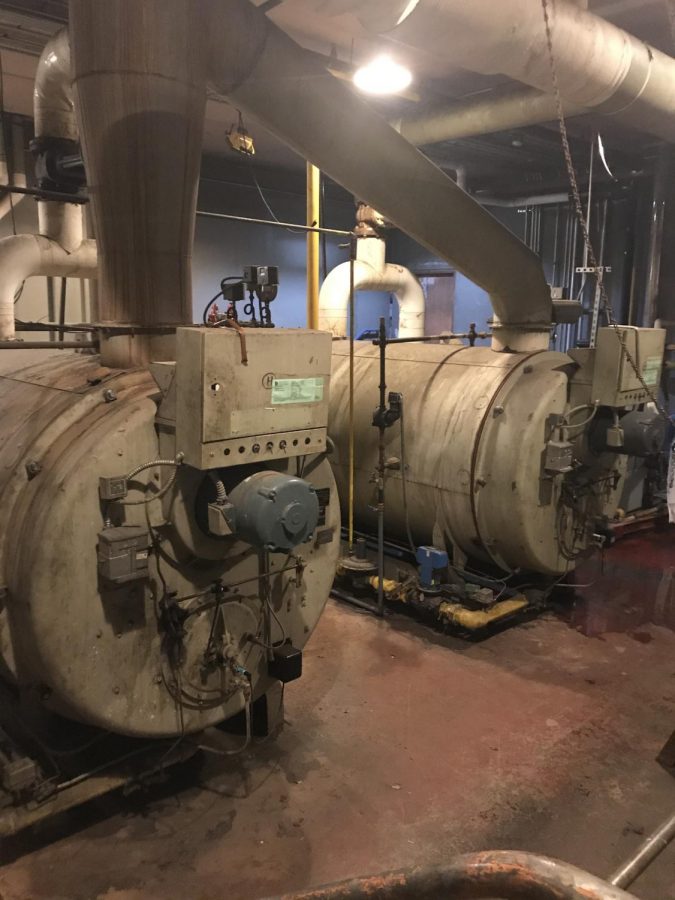Special Election Levy Could Mean Much Needed Repairs Come to SWHS
Sedro-Woolley High School students will not have to deal with cold classrooms due to boilers that malfunction intermittently.
February 1, 2020
The deafening roar, the red chemical water ankle deep in some areas, walls covered in leaky, outdated pipes patched together with the years of needed repair shown in the array of different parts that make up the decayed heating system of Sedro-Woolley High School.
As the most recent ballot begins hitting the mailboxes of Sedro-Woolley residents, Sedro-Woolley School District awaits the decision from voters on their special election capital projects levy that was added after a unanimous vote early last December.
The Feb. 11 vote will determine the passing of the district’s $2.5 million annual capital projects levy, which, if passed, will be in effect for six years and allow the district the funding necessary to update and maintain building infrastructure and improve safety and technology within schools.
The proposed money would come from an additional 64¢ per $1000 in property taxes, which would be reduced to 55¢ by the end of the six year duration.
According to the district, the need for funds is due to both the growing size of classes and the inevitable continuous aging of the school buildings.
“We keep adding bandaids to issues trying to get by until we have money to upgrade or replace items,” said Chet Griffith, SWSD’s Transportation and Facilities Director.
Sedro-Woolley High School opened its doors back in 1911 and has since seen multiple generations walk through it’s halls. After all these years of being a staple of education in the community, it, as well as other schools in the district, are past due for several updates.
“Schools are in disrepair because of a lack of funding,” said Dave Shusta, Secretary of Sedro-Woolley Education Association.
Staff and students in the high school have grown accustomed to the fluxuations in classroom temperature. Some students bring blankets from home while some teachers keep extras in their classrooms, as seen recently on the front page of the Skagit Valley Herald. Maintenance is seemingly constant as new leaks appear in the aged ceiling almost daily.
“This is nothing other than to keep the water out and the heat in,” said SWSD Executive Director of Business and Operations Brett Greenwood, assuring voters that the $15 million is for baseline necessities.
SWHS Custodian Teresa Gilbert as well as the other maintenance staff have had to accommodate the boiler’s near daily malfunctions. The boiler room of SWHS, located in the gym, frequently floods with water and chemicals. The boiler must be checked every morning around 4 a.m. to check that the machine has turned on, many mornings it doesn’t and must be started manually by a district employee.
The roofs require patches to help keep them from further crumbling. Custodial staff, on top of the daily work orders and routine cleaning, utilize what materials and minimal budget they have to keep the facility running, but the clock is running out on some outdated amenities.
The district has spent money on specialized maintenance workers; the levy would greatly reduce this cost. Custodial staff is in favor of the levy, as improved infrastructure allows them to get back to their normal hours, rather than working overtime to keep the school clean, warm, and dry.
The district has uploaded several videos to their website that show video evidence of the condition that some buildings are in. The videos show SWHS’ boiler, and several areas of roof, Central Elementary’s roof, Mary Purcell’s windows, and more to show voters the real condition of the schools that they send their children to every day.
After two denied bonds to make improvements to Evergreen Elementary, the board regrouped, and after a community survey, it was decided that the capital levy was the best option to help restore the most crucial and pressing infrastructure needs.
“There’s never a good time to ask for a new tax, but right now we feel like our job is to be transparent with the public and the parents and the kids and say, ‘This is the state of our buildings, and this work needs to be done,’” said Greenwood.

The floor of Sedro-Woolley High School’s boiler room is often times flooded with a red chemical-water, which is both inconvenient and unsafe.



